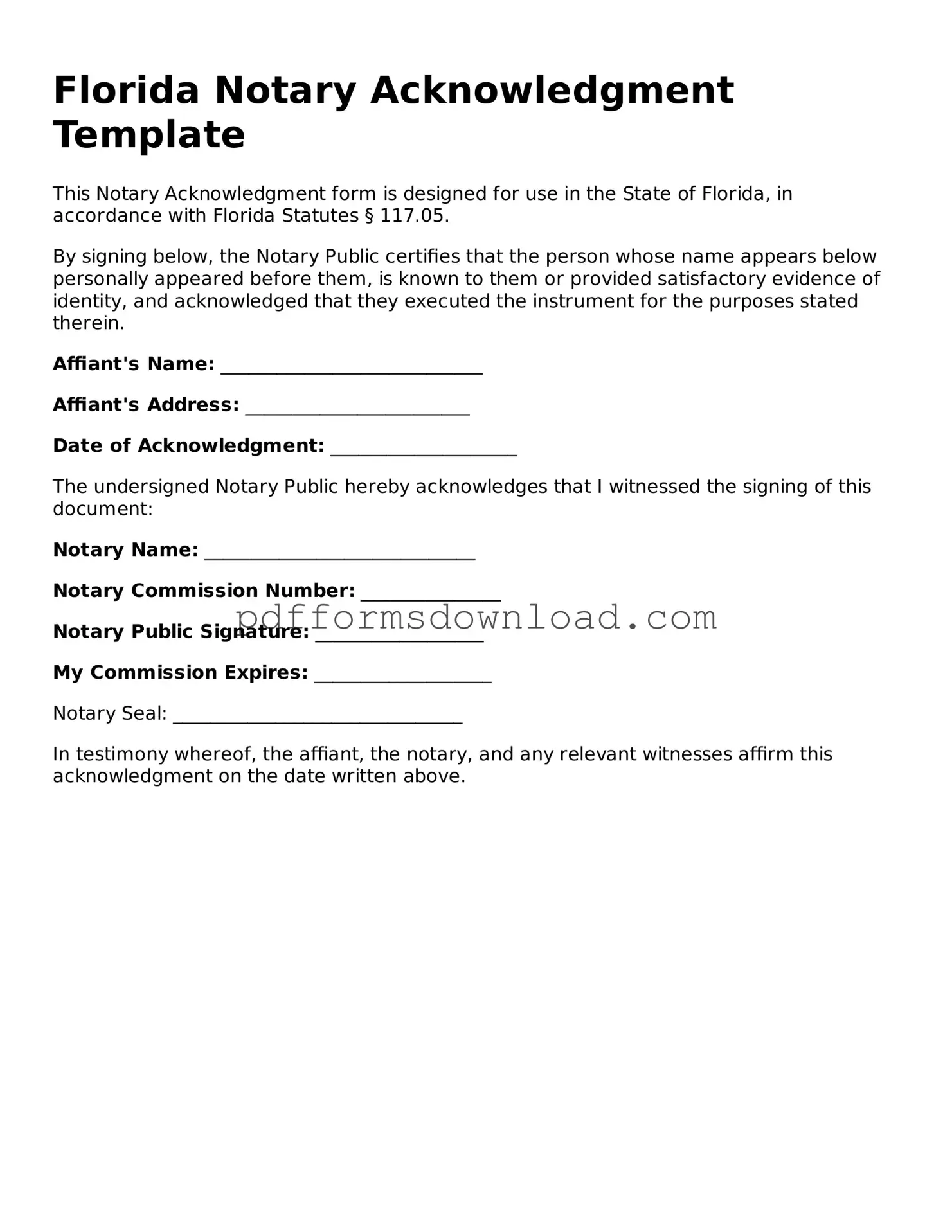Printable Florida Notary Acknowledgement Form
The Florida Notary Acknowledgement form serves as a legal document that verifies the identity of the signer and confirms that they willingly signed the document in the presence of a notary public. This form is essential for ensuring the authenticity of various legal documents in Florida. To ensure compliance and proper execution, consider filling out the form by clicking the button below.
Make This Document Now

Printable Florida Notary Acknowledgement Form
Make This Document Now

Make This Document Now
or
Free PDF File
Your form is almost ready
Complete your Notary Acknowledgement online — edit, save, and download easily.